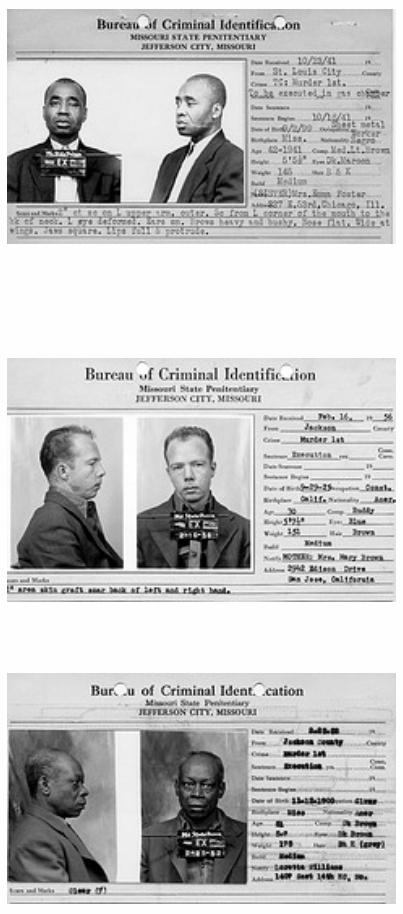Capital Punishment

Capital punishment in USA
Pre reading activity:
Take a poll in your class about the death penalty.
- How many people are in favour of it?
- How many are against it?
- How many are undecided? Make a list of the reason(s) why some students are undecided.
Review the results:
Make a pie chart diagram with the class results.
Group Discussion:
Are the results at all surprising to you? Did the majority of the class vote the same way as you did?

Otherwise known as the death penalty, capital punishment means executing a criminal for a serious crime. In the United States, each state determines whether to practice capital punishment and what offences are capital crimes, but first degree murder is a capital offence in all states. Presently, 32 states have a law permitting capital punishment, but it is not practiced in more than half of them.
Those states which practice it are primarily southern states with Texas executing the most criminals (452 since 1976). The United States has the questionable position of being the only western country practicing the death penalty and shares this position with undemocratic countries such as China, Iran and Saudi Arabia. Lethal injection is the primary form of execution practiced by most states while the electric chair and the gas chamber are still used in some states.

The question of capital punishment is highly controversial with strong and often emotional supporters on both sides of the issue. Those favoring capital punishment state that the death penalty serves as just punishment for a serious crime—an eye for an eye from the Bible. Often the victims’ survivors demand capital punishment as a means of getting even with the offender. A second argument is that capital punishment deters crime. The rationale is that no one would commit a capital offence if they knew they would be put to death. However, statistics prove the opposite with the murder rate in states without capital punishment being lower than the 35 states with it. A third argument is that capital punishment keeps offenders from returning to society and committing new crimes. A fourth argument is that it is cheaper because keeping criminals in prison is expensive. However, once again, statistics show that execution is more expensive largely due to extended legal action to save the prisoner. In addition, many of the prisons are privately run and the prisons work and generate income for the prison owners, which reduce the costs of keeping life-term prisoners.
Those opposed to capital punishment argue that innocent inmates can be executed before they have a chance to prove their innocence. Recently, with DNA testing, over 120 inmates convicted of capital crimes have been proven to be innocent and their lives spared. Those opposed to capital punishment point to statistics which show that capital punishment is not a deterrent and is more expensive than life in prison. They also feel that it is “cruel and unusual” punishment and thus is against the eight amendment to the Constitution. Finally they show the racially prejudiced nature of the legal system where 42% of the prisoners on death row are black even though only 14% of the American population is black. Critics claim that many black inmates are victims of discrimination. Due to blacks’ poor economic state they cannot hire a good attorney, and they may also face prejudiced juries.
Then what are the chances of abolishing the death penalty? Judging from opinion polls, the chances do not look very good. A Gallup poll in 2009 showed that 65% of Americans continue to support the use of the death penalty for persons convicted of murder, while 31% oppose it -- continuing a trend that has shown little change over the last six years. Most Americans who favor capital punishment feel that the purpose of punishment is primarily to pay back the offender which shows a very vengeful attitude among the respondents. Thus, there will not be much public pressure to abolish the death penalty and it is doubtful whether Congress will do anything without substantial pressure.
Comprehension
- What is another word (synonym) used in the text for the death penalty?
- How many states in the US have a law permitting the death penalty and what percentage of the total number of US states does this represent?
- Which method is used as the primary form of execution?
- What are some of the arguments mentioned that support capital punishment?
- What are the arguments expressing opposition?
- Why are many of the prisoners on death row black?
Discussion
- Crime may vary from minor offenses to murder and million dollar robberies. Make a five point list of serious crimes starting with the worst on top.. Discuss why these crimes are worse than others.
- Do you believe seriously violent people may reform? If so - how? Keywords to help: social interaction, religion, respect, love, rehabilitation from drug abuse. . .
- It is important to give offenders a chance to improve on the other hand the public must be protected from dangerous offenders. Do you feel that there is a good balance between these two interests in our society today? What is your impression of the USA in this respect?
- Do you believe that money and education play important roles when it comes to the chances of being convicted or not?
- Some suggest that the death penalty is racially unjust. Is it biased, in the sense that black people are convicted more often? How can this occur, in a country which promotes equality and justice?
- Individual States vs Government: do you agree with the present system of states having the right to decide on capital punishment or should this be taken up again in the Supreme Court, and a national decision made?
Further Research
Takes notes from two sites below presenting opposing views. How do they differ? Which site do you agree with? Compare findings with a fellow student.
The Green Mile (1999)
Dead Man Walking (1995)
A Time to Kill (1996)
Relatert innhald
Try these two tasks to our resource about "Capital Punishment".